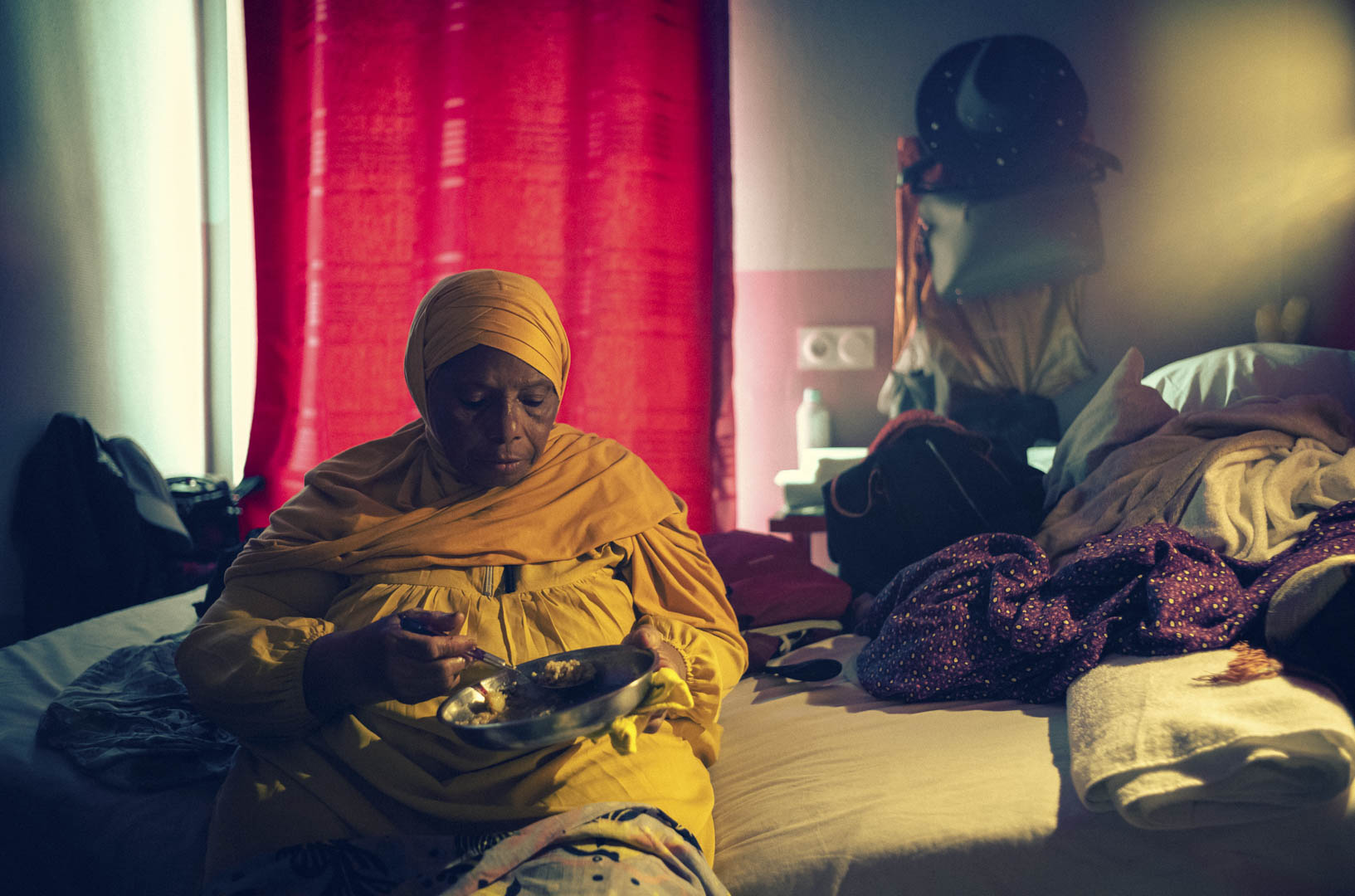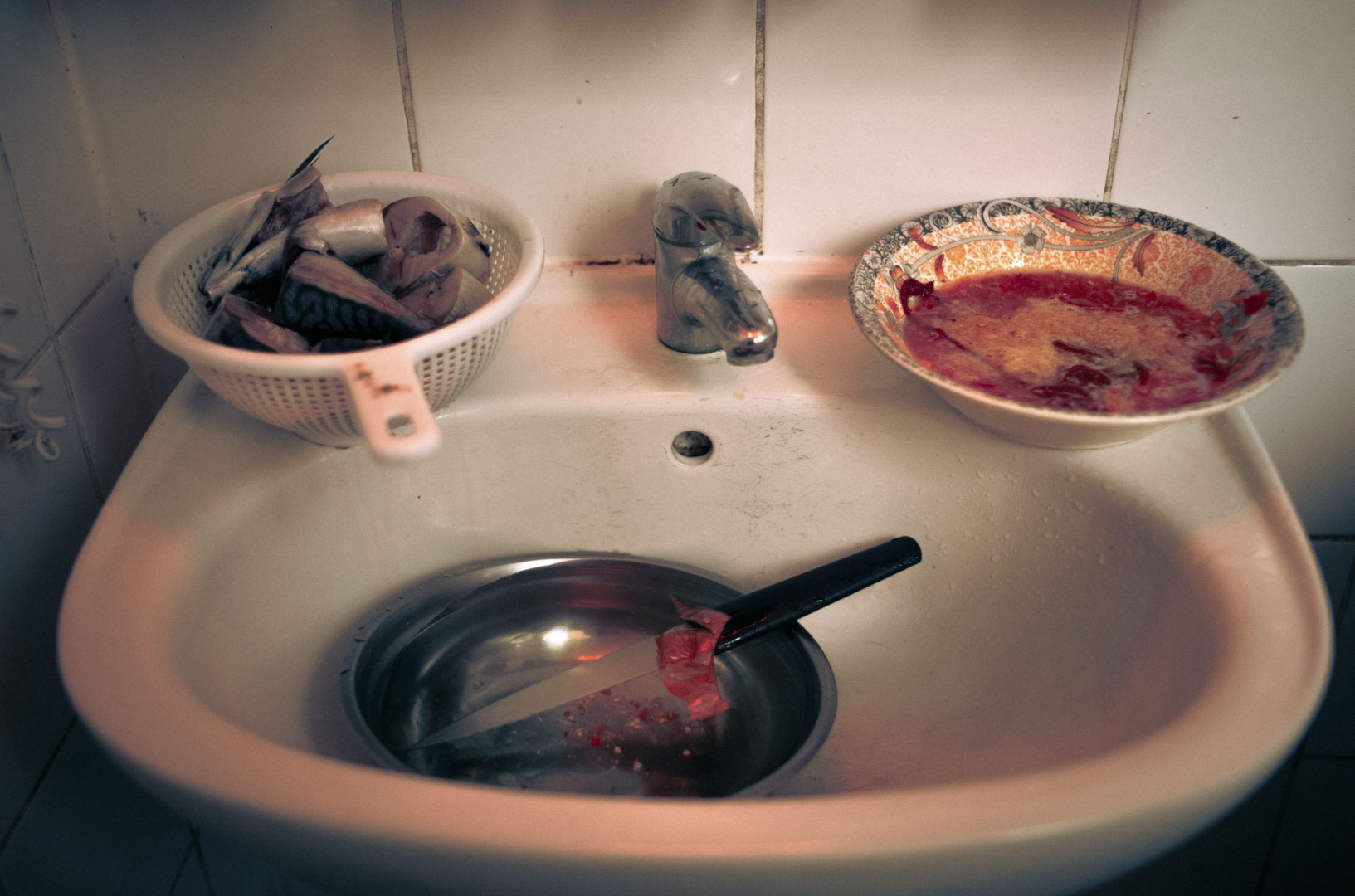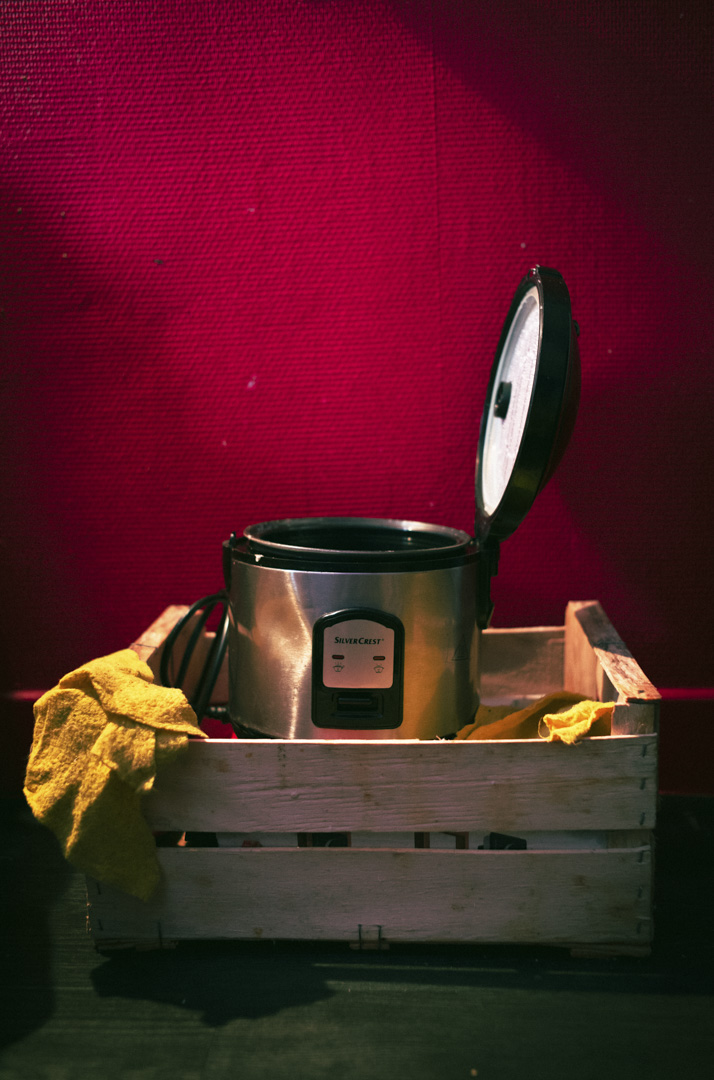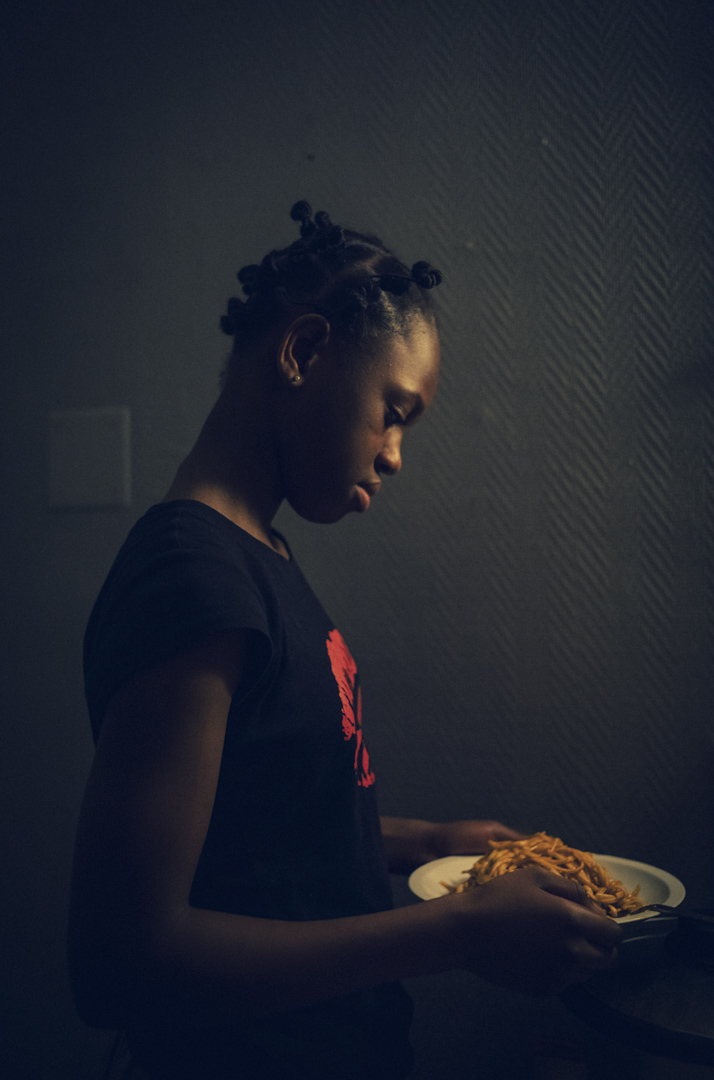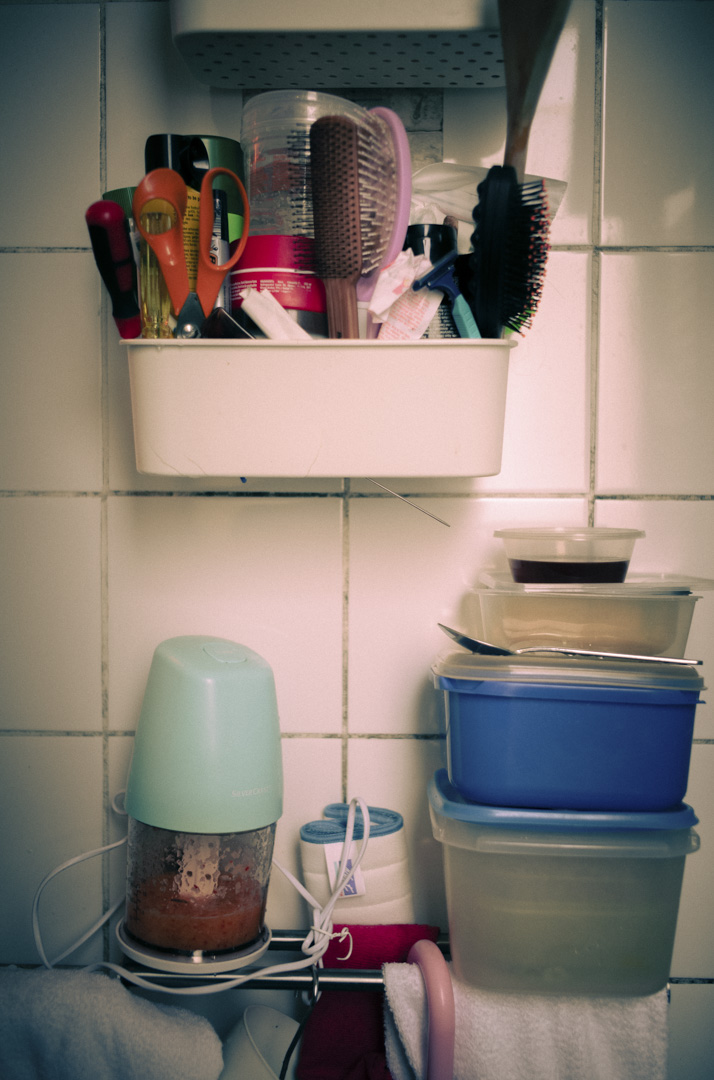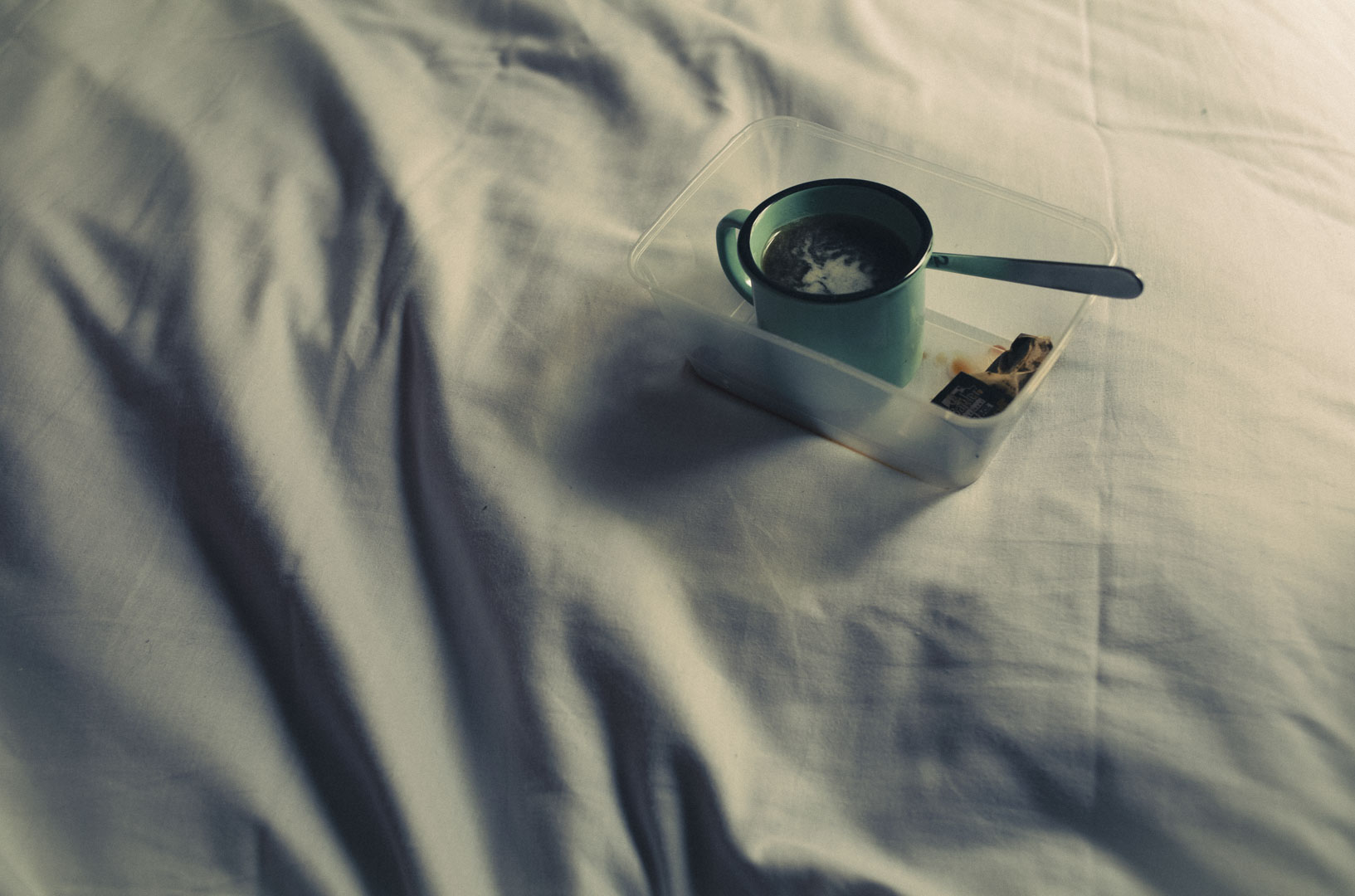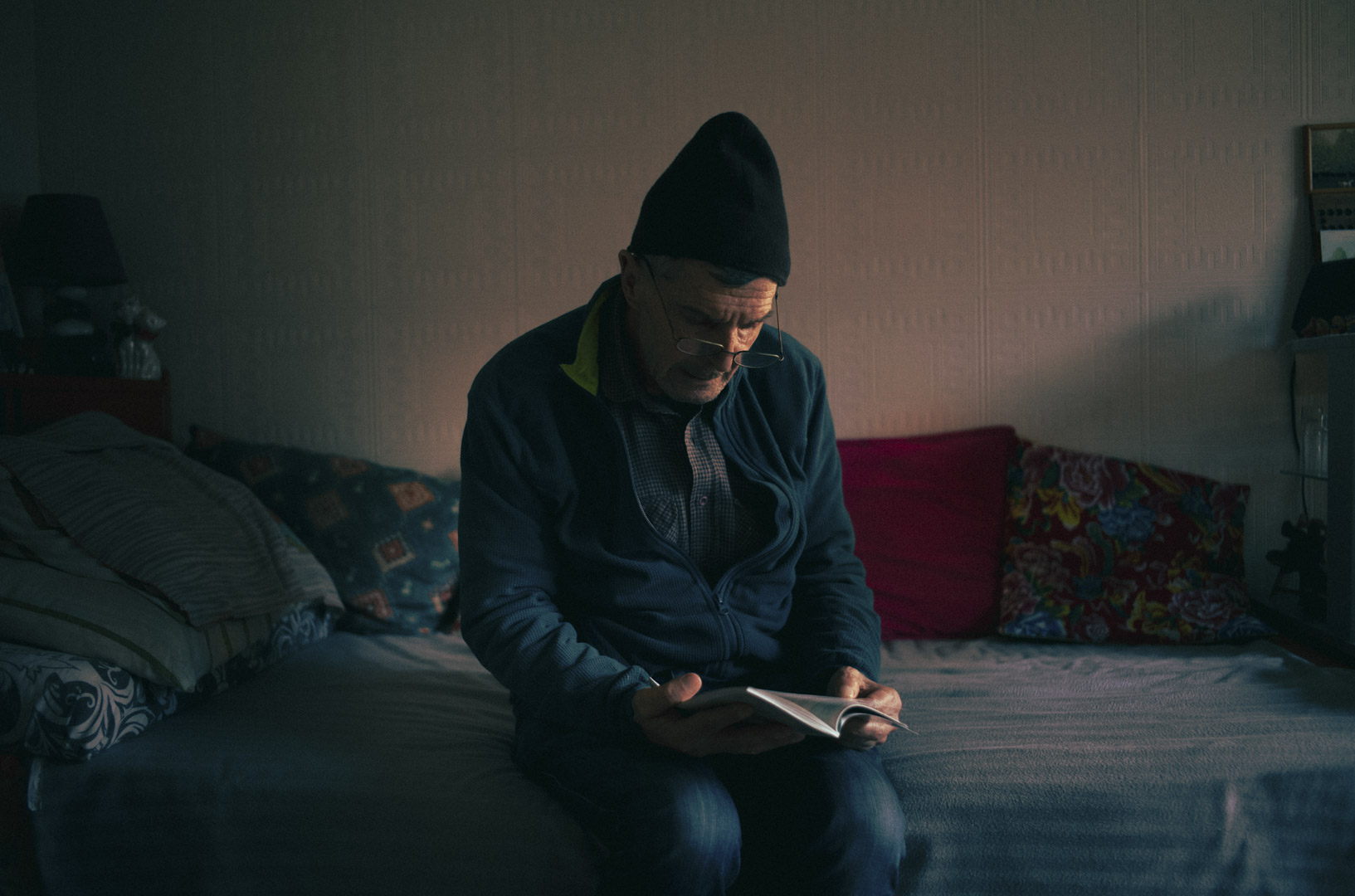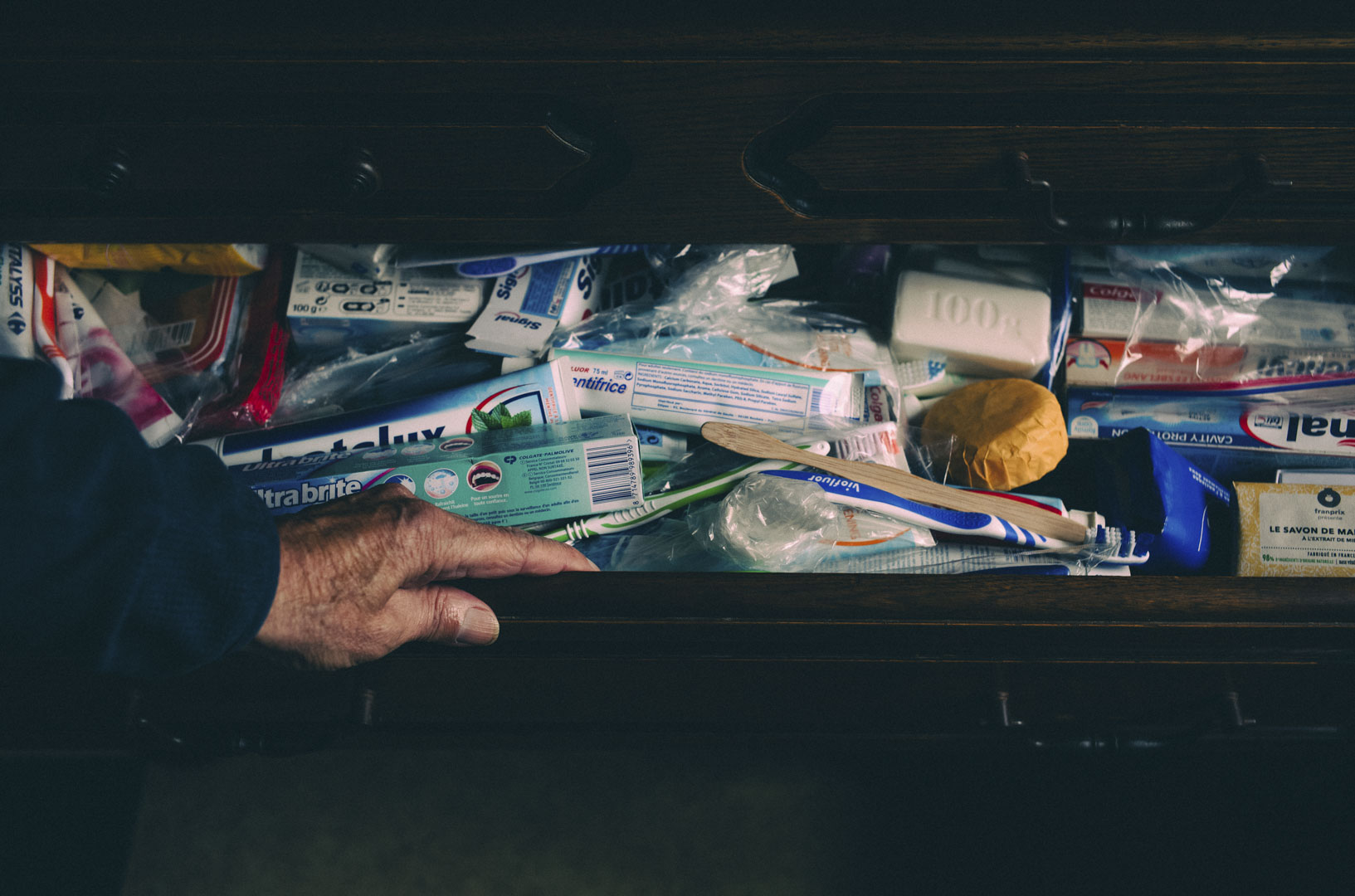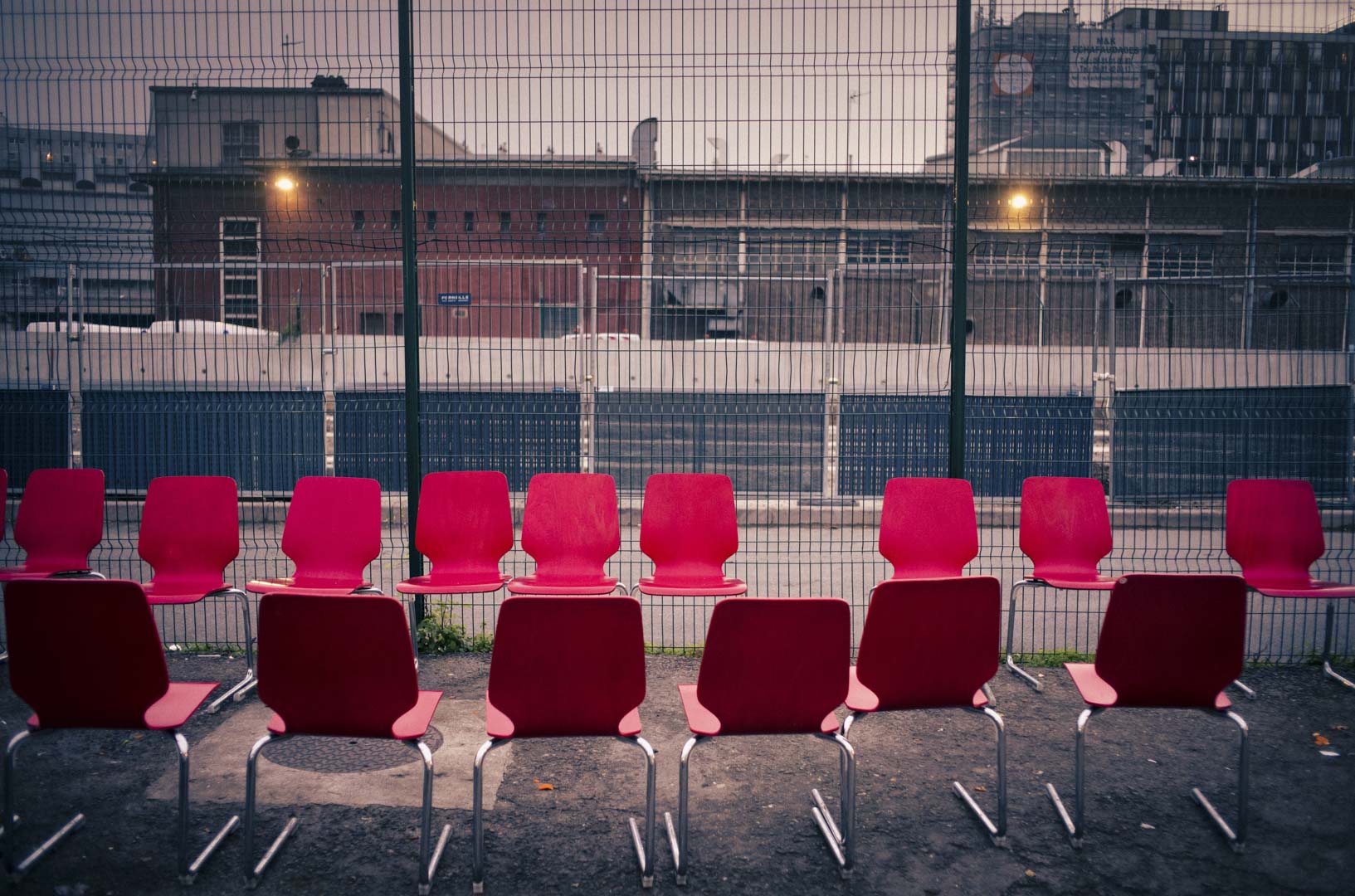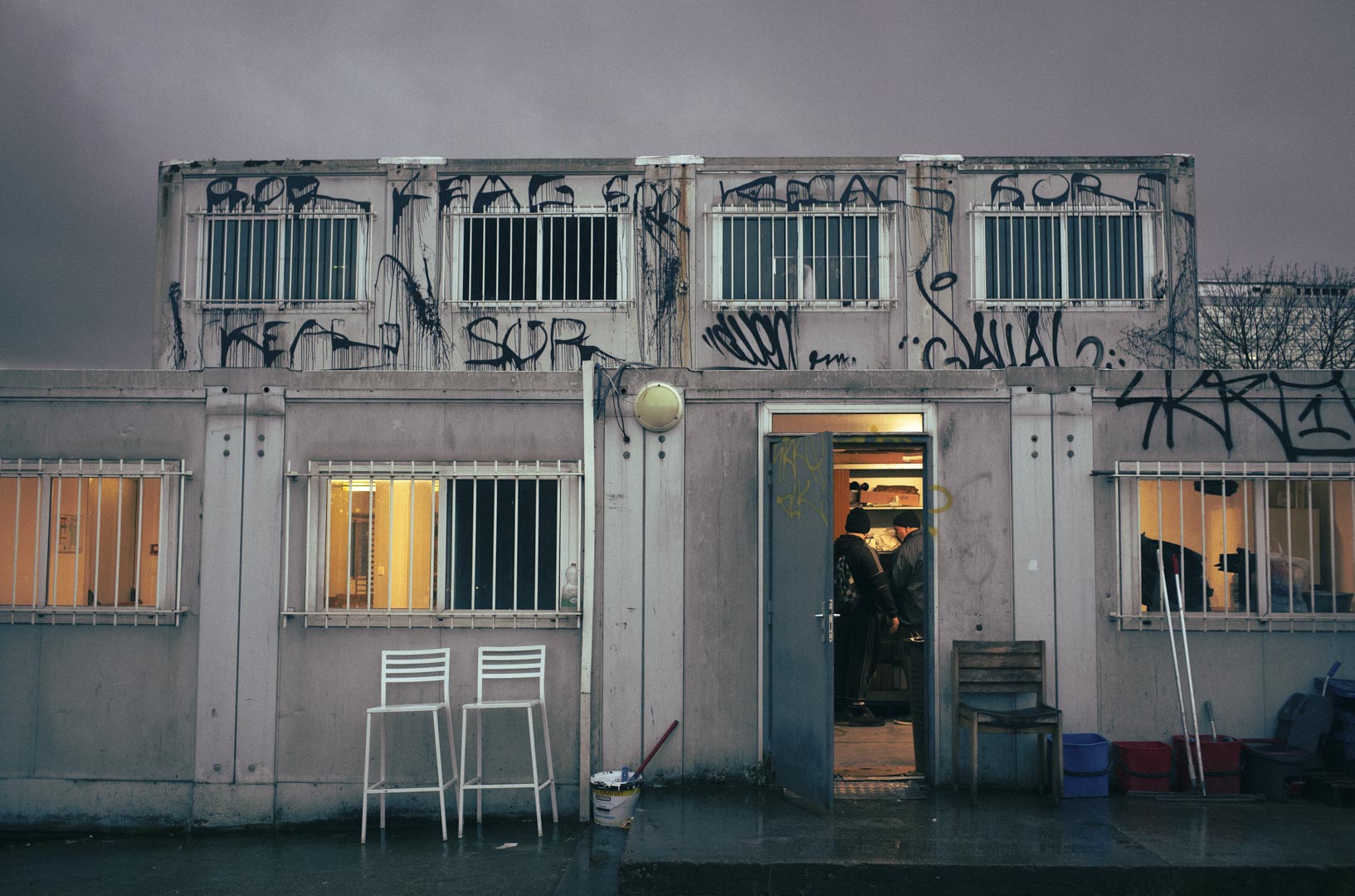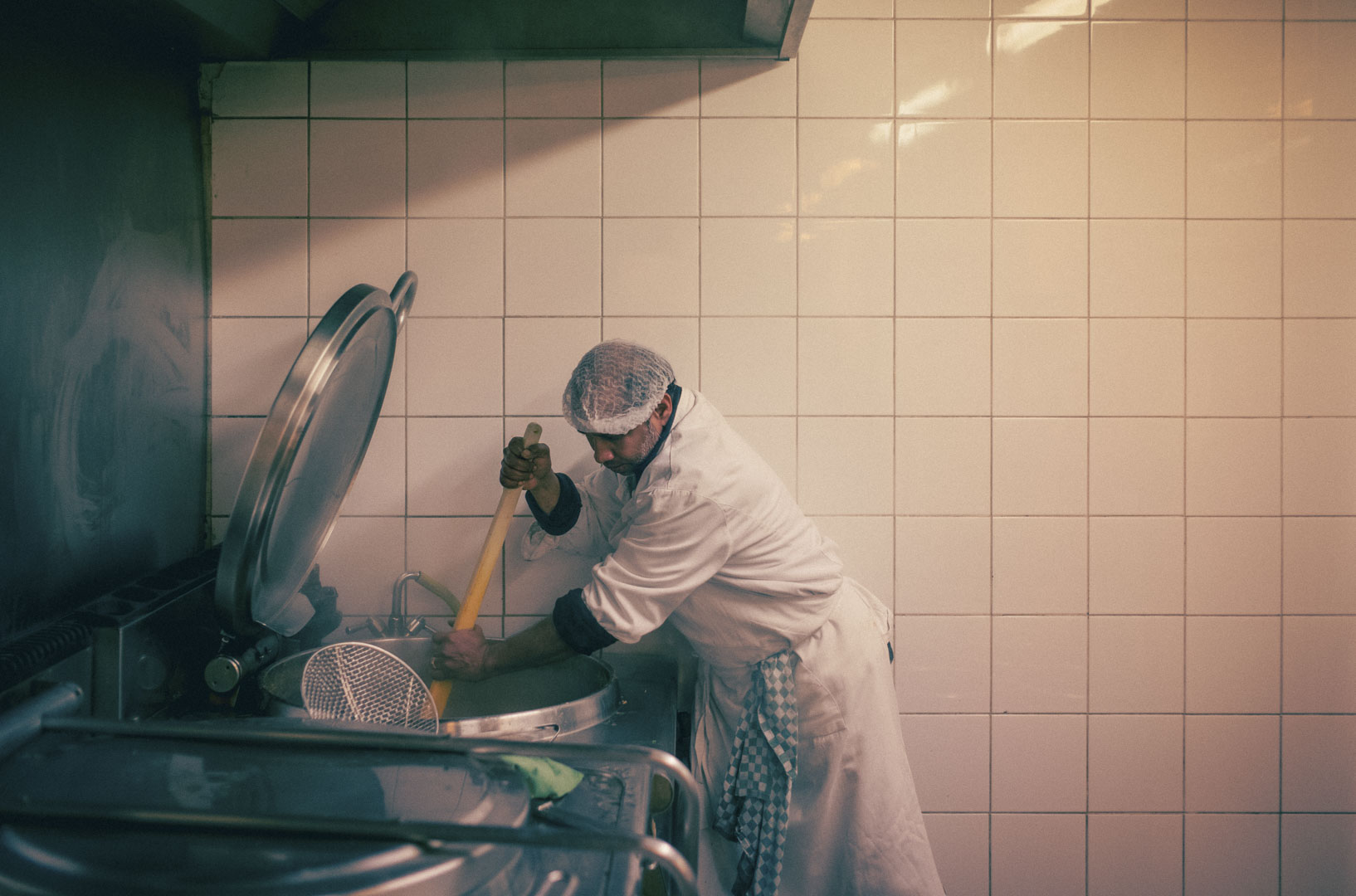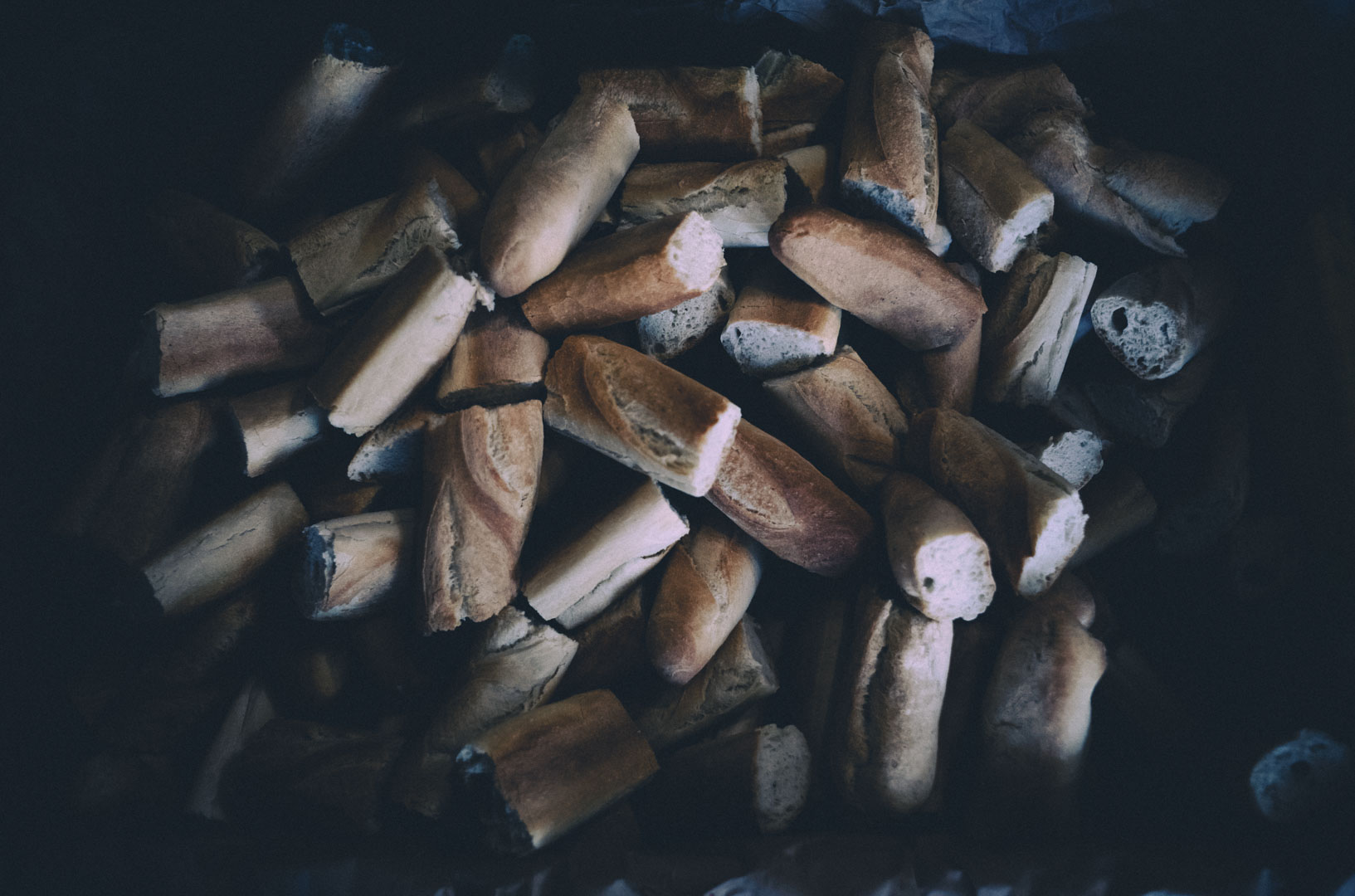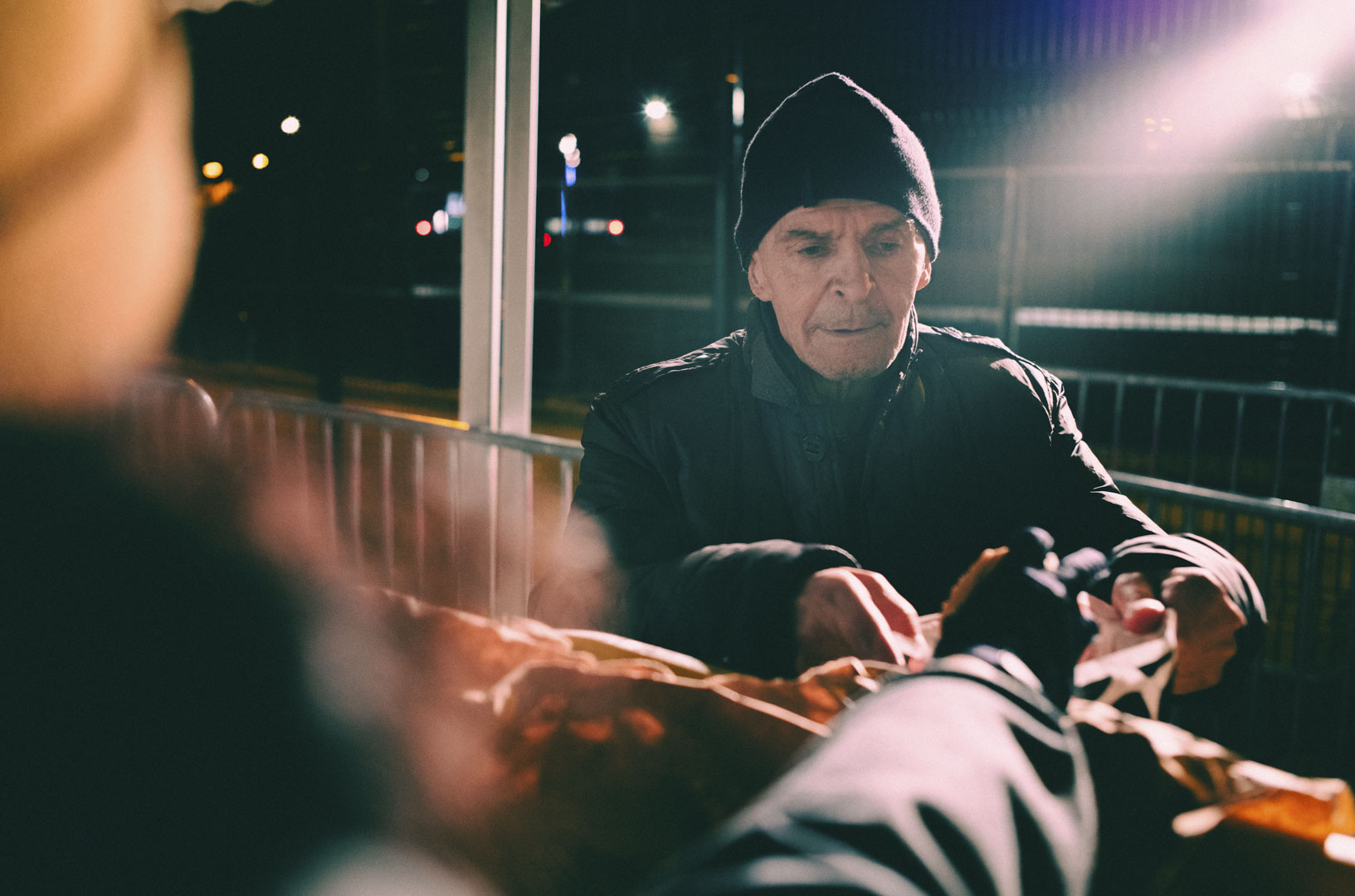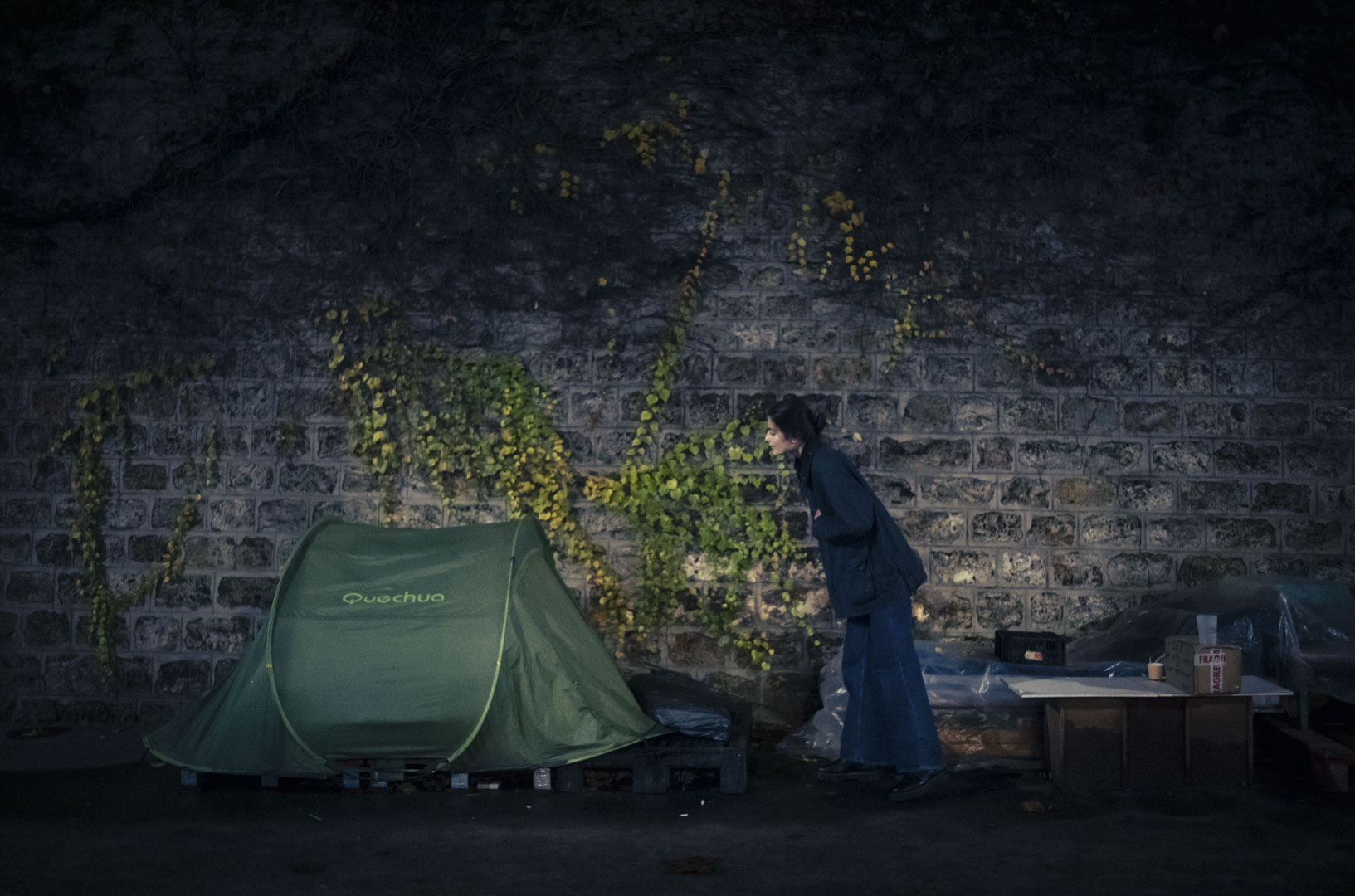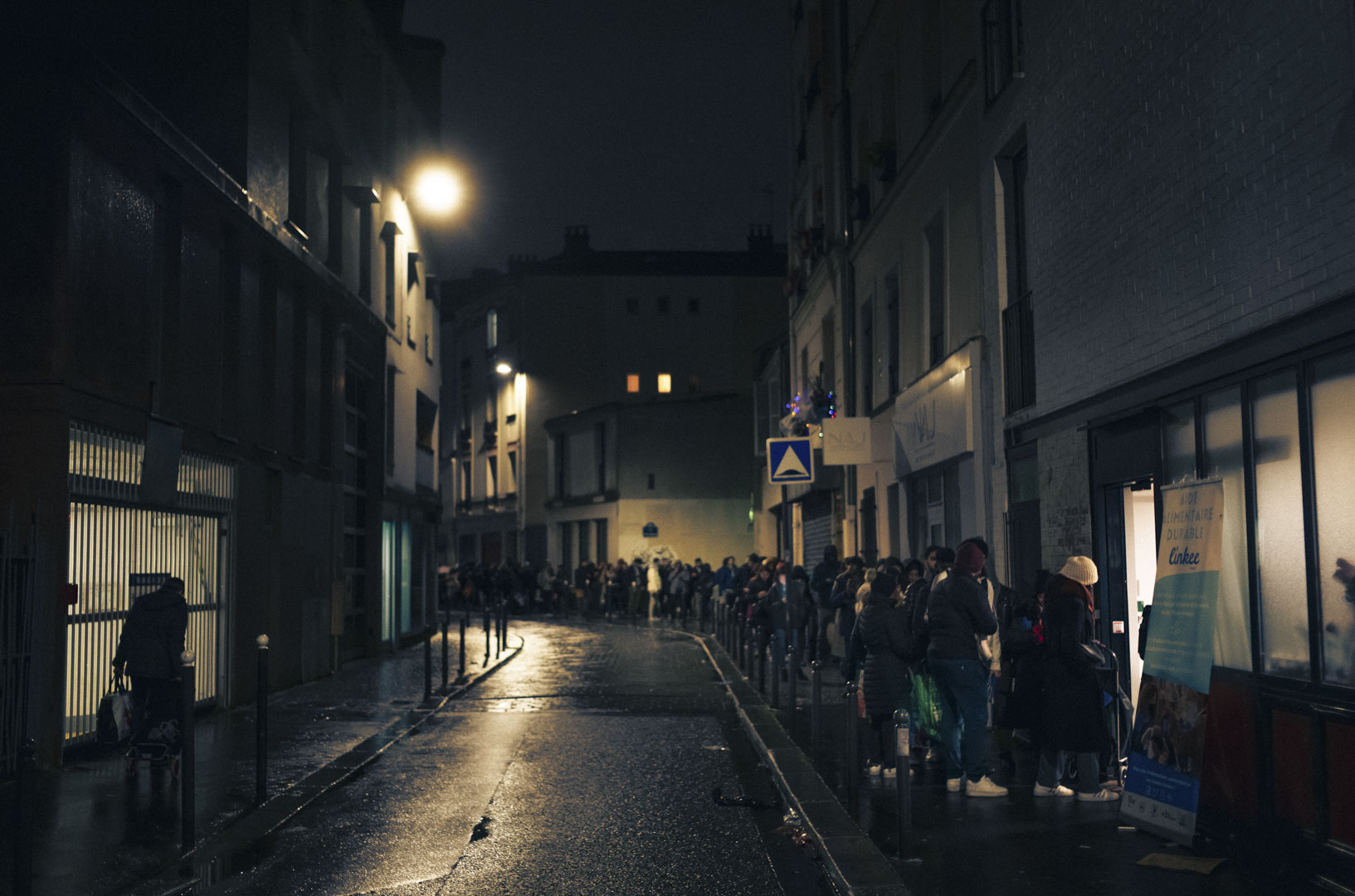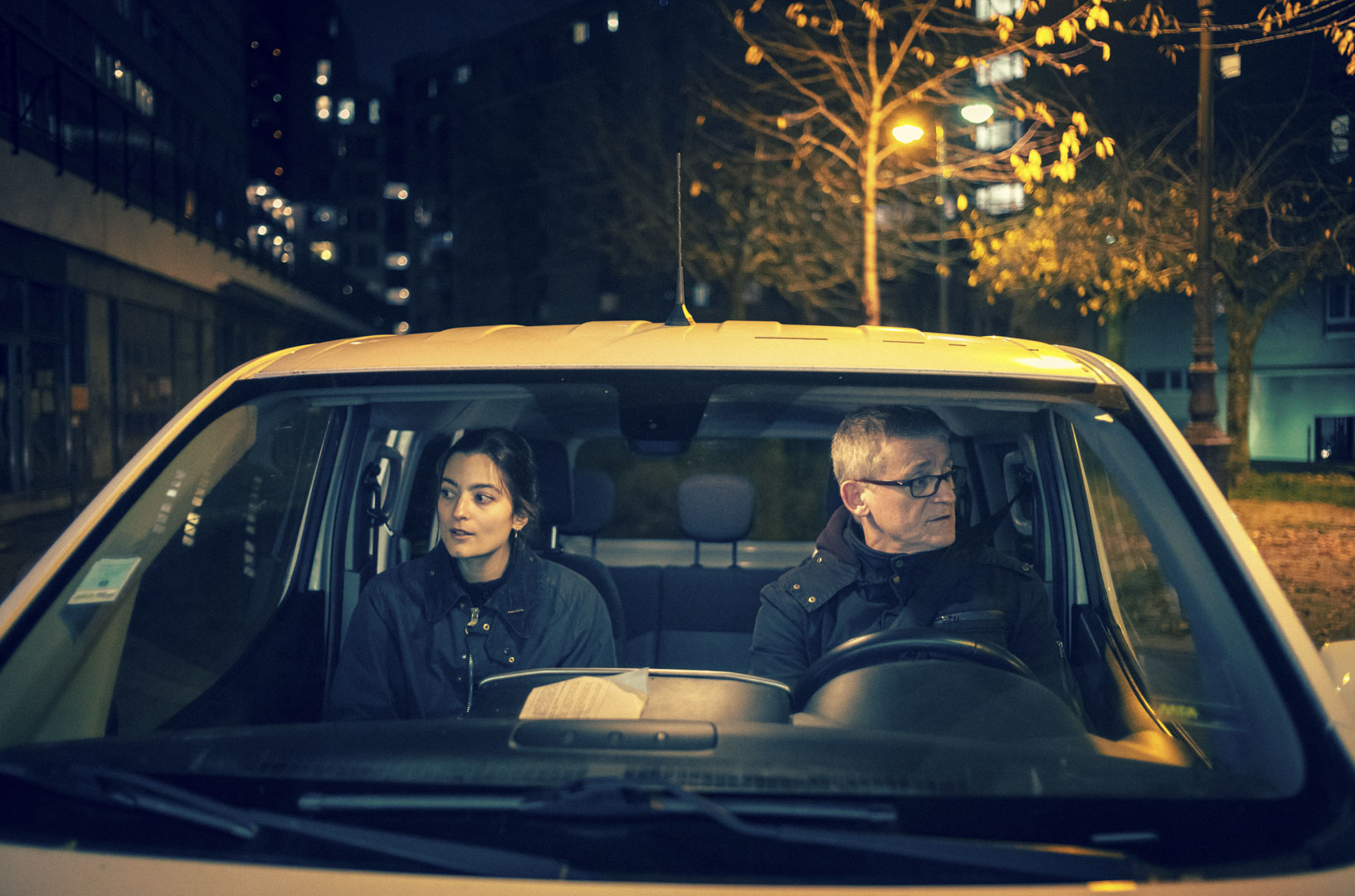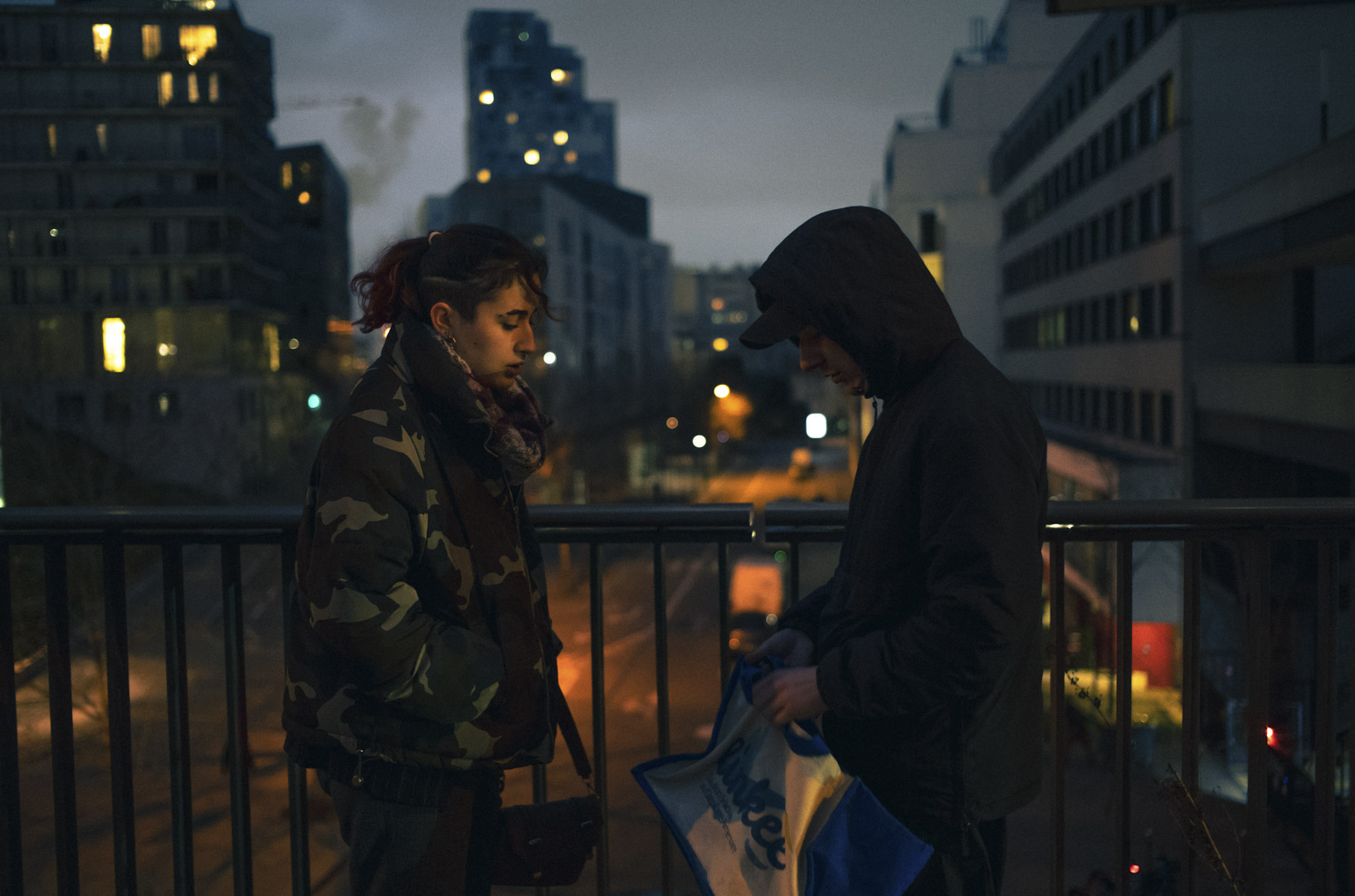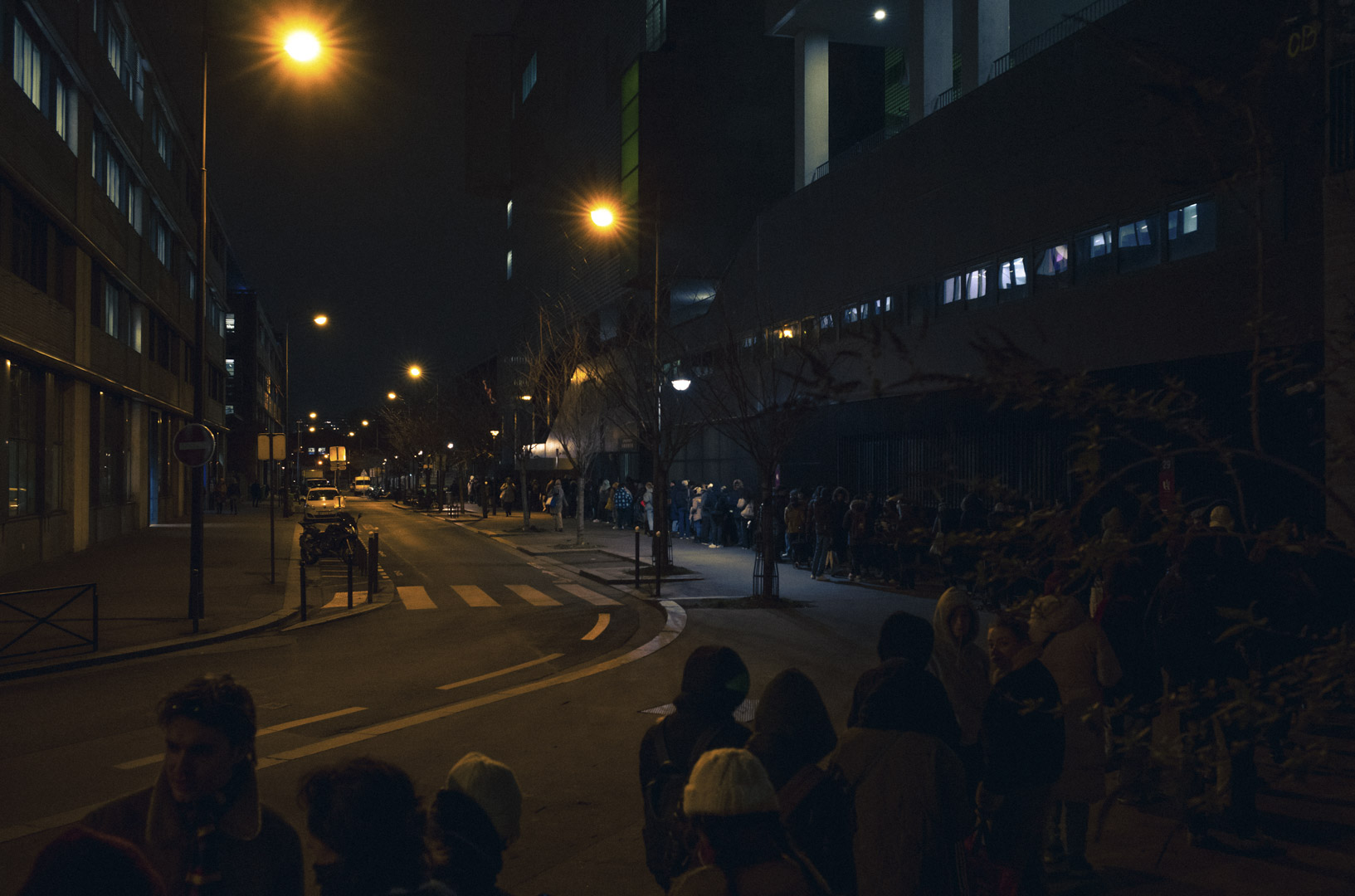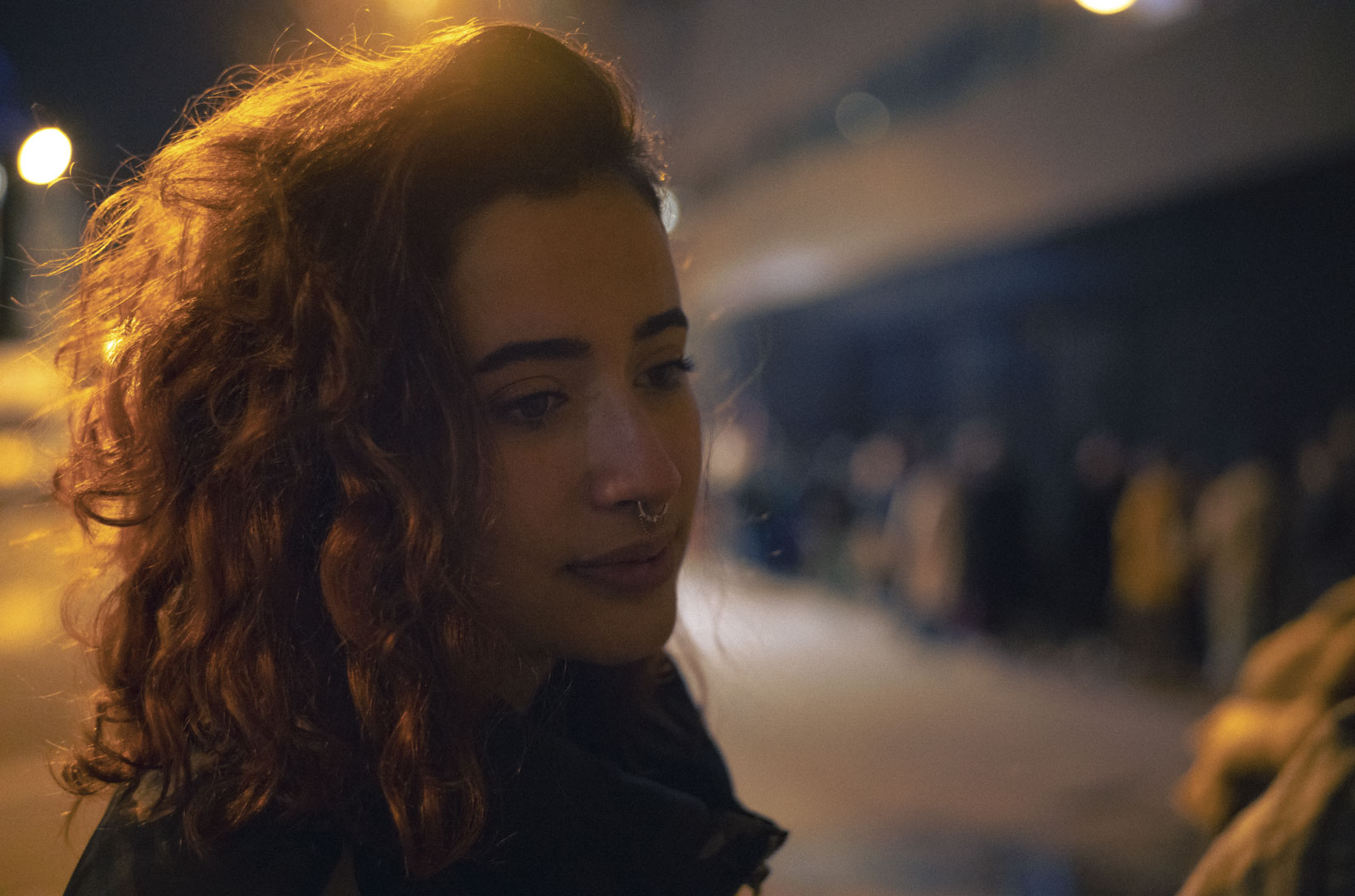Dans le creux, 2022-2023
They wait in a square, as they do every day, to receive the food aid parcel offered by an association. They include families, single men and women, the elderly and students. With the economic consequences of the health crisis and the war in Ukraine, there are more of them than before.
Hunger in the countries of the South, reflected in photographs of children with swollen bellies and mothers too thin to breastfeed their children, does not exist in France. Here, it is discreet, operating “in secret, almost without apparent trace”, as physician and geographer Josué de Castro describes it. It can be found in social services, at food promotion events or when security guards intervene at supermarket exits.
Alarming figures reveal the scale of the food insecurity problem in France. According to the most recent data, over 8.8 million people live in poverty, facing daily difficulties to feed themselves adequately. Of these, almost 2.3 million survive on a maximum monthly income of 672 euros, leaving them with difficult choices between paying bills and obtaining basic foodstuffs. These statistics remind us that even in one of the world’s leading agricultural producing countries, nearly three million people relied on food aid in 2022. Beyond the statistics, the phenomenon is hardly visible.
After covering more than 20 food crises around the world for the press and NGOs, in 2019 I began an in-depth documentary work on hunger. I have completed the first chapter of this project in Guatemala and am now developing the second chapter in France since 2022. My work began in the Île-de-France region, and I now want to continue this series in the rest of France. My aim is to document not only the situation of families affected by food insecurity, but also the initiatives put in place by society to combat this problem.
This series is made up of photographs accompanied by short texts describing the realities experienced by people affected by food insecurity. My aim is to highlight the paths taken by these individuals, their journeys and their aspirations, while preserving their dignity.
Through this testimony, I hope to make visible and concrete the living conditions of some of our fellow citizens. Let the statistics be replaced by faces, to provide the public with elements of awareness and understanding.
Nagbe Ballo, a 67-year-old woman from Côte d’Ivoire, has been living for three years in a small room in a social hotel in the Simplon-Poissonniers district of Paris. Faced with serious health problems and no financial resources, her survival depends entirely on charitable organizations. Every month, she goes to the Secour Populaire center in search of foodstuffs, many of which are collected from nearby supermarkets just before their expiration date.
Back at the hotel, Nagbe keeps her groceries under the bed. Although the establishment has no communal kitchen and rules forbid cooking in the rooms, she keeps a rice cooker as a clandestine treasure to prepare her daily meals. Despite the precariousness and constant danger of fire, social hotels offer no safer, dignified alternative for those who call these places home.
Jean-Pierre Richard, aged 72, spent his life sweeping the streets of Paris as a municipal employee. Every day, at the end of his working day, he would come across the endless queues of people waiting in front of the Restos du Cœur truck. He never imagined he’d find himself in a similar situation. After his retirement, his wife left him, leaving him alone to manage expenses with a meagre pension that barely covers his monthly needs.
The pandemic and rising food prices have further aggravated his already precarious financial situation. For three years now, Jean-Pierre has been going to the Porte de Villette every day to get a hot meal distributed free of charge by charities.
Morgane Dayma, a 19-year-old from Montpellier, came to Paris to study sociology at university. She was soon confronted with the high cost of living and housing in the capital. Precariousness hit her hard, prompting her to skip meals and look for ingenious ways to obtain food close to its expiration date via apps. The complex logistics of combining the search for food with class schedules became a real challenge.
However, all that changed when, thanks to a friend, she discovered Linkee, an association offering food baskets to university students. Initially a beneficiary, Morgane soon became a volunteer, devoting her evenings to helping other young people in similar situations.
